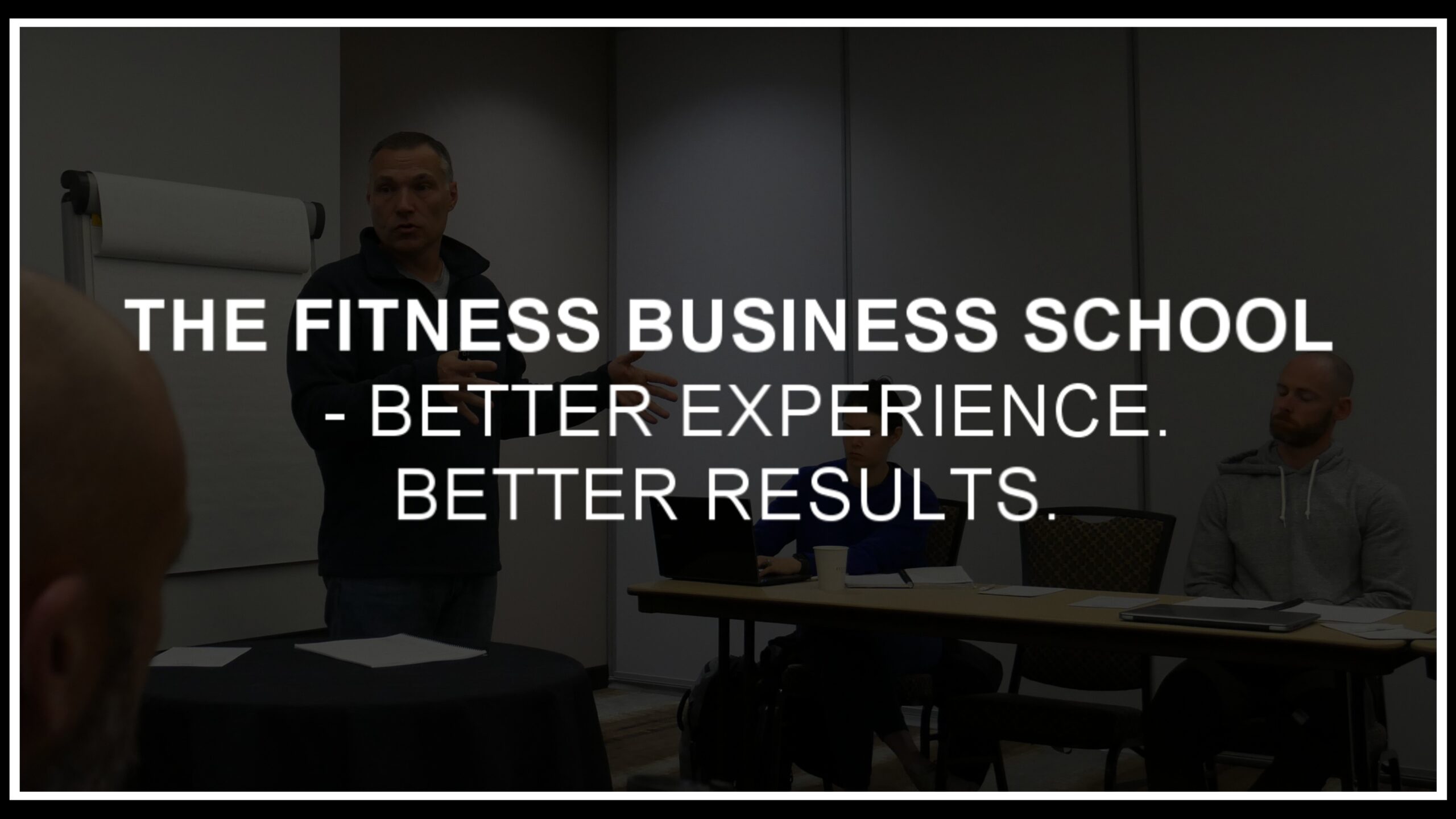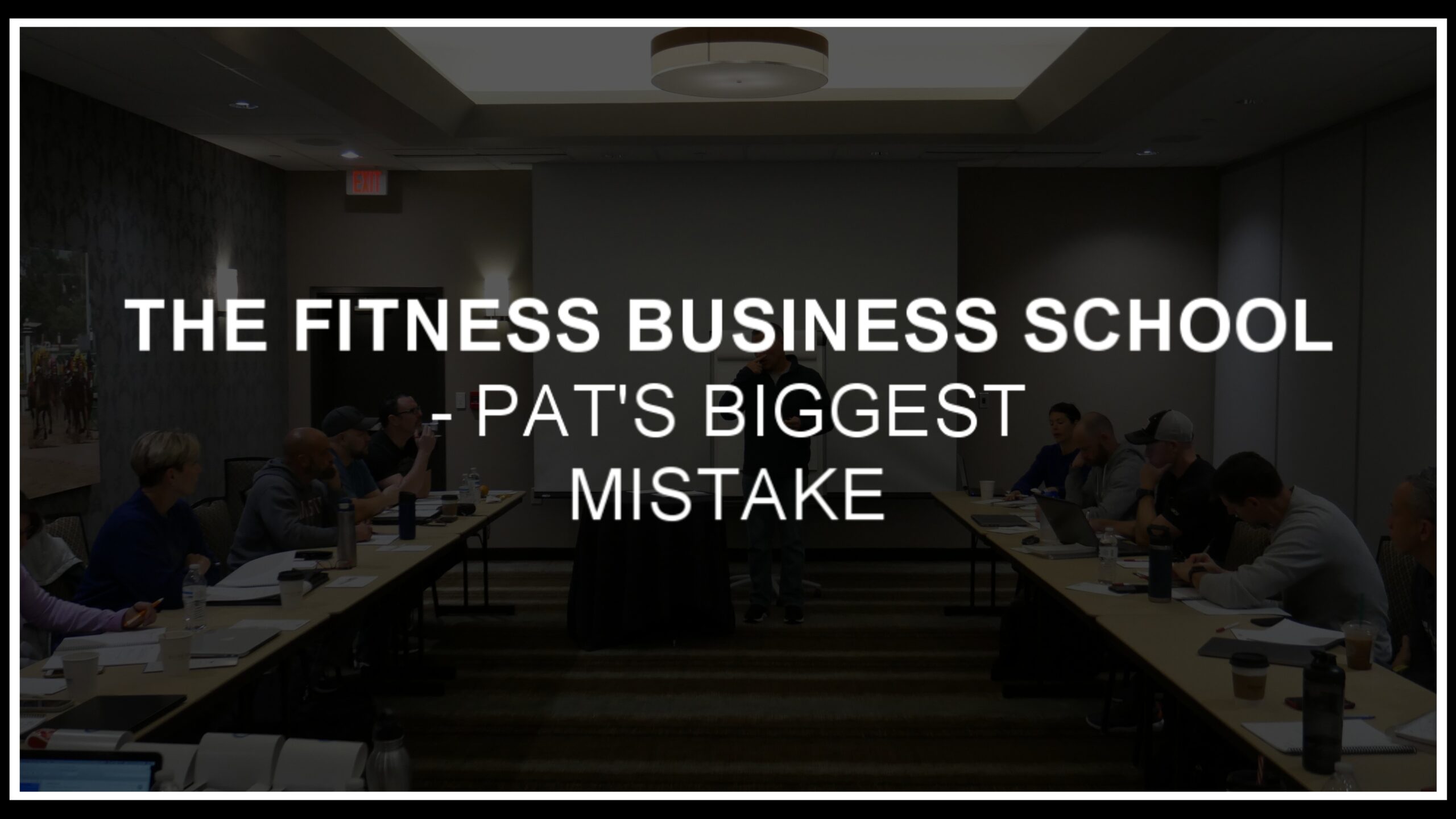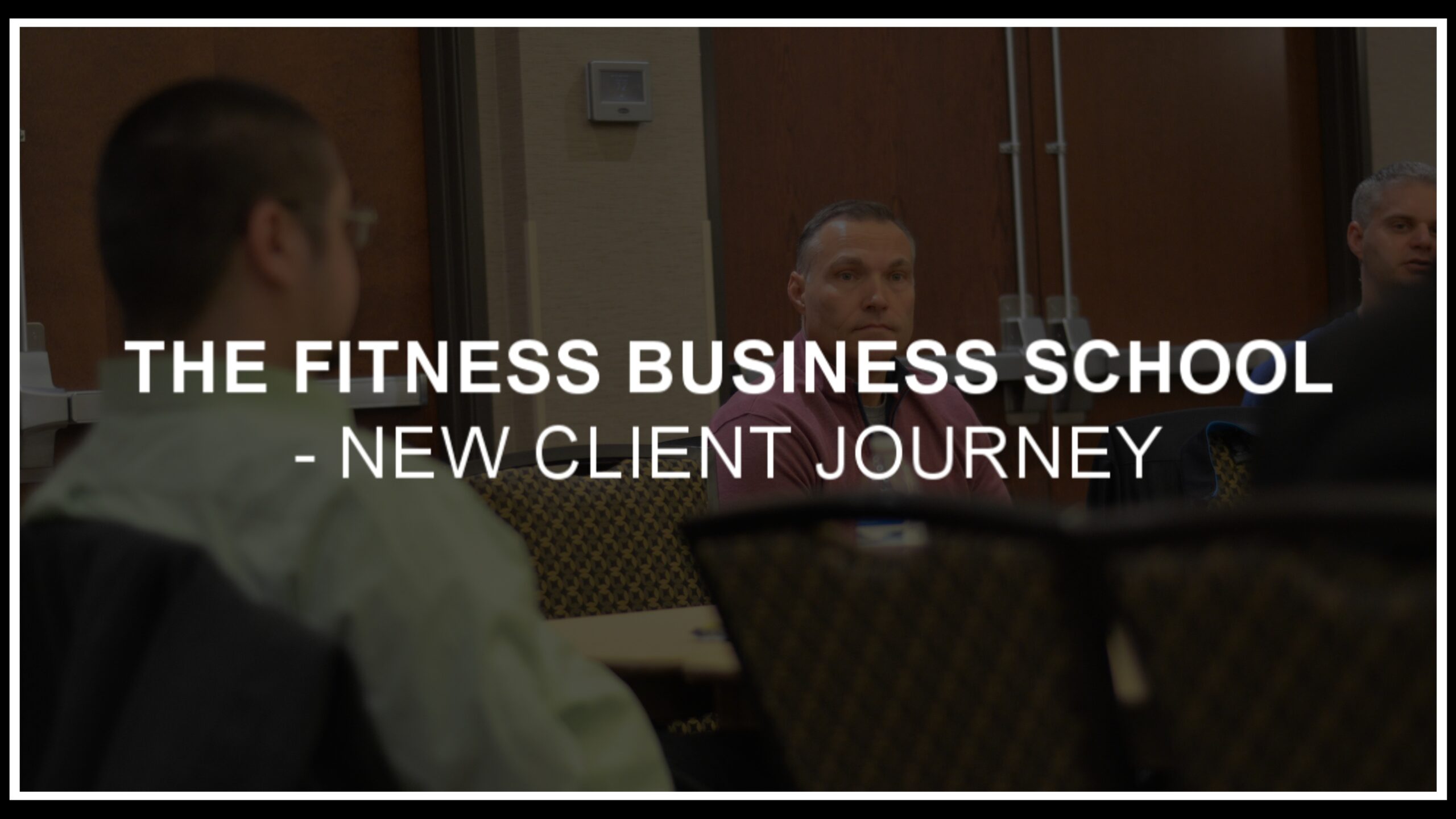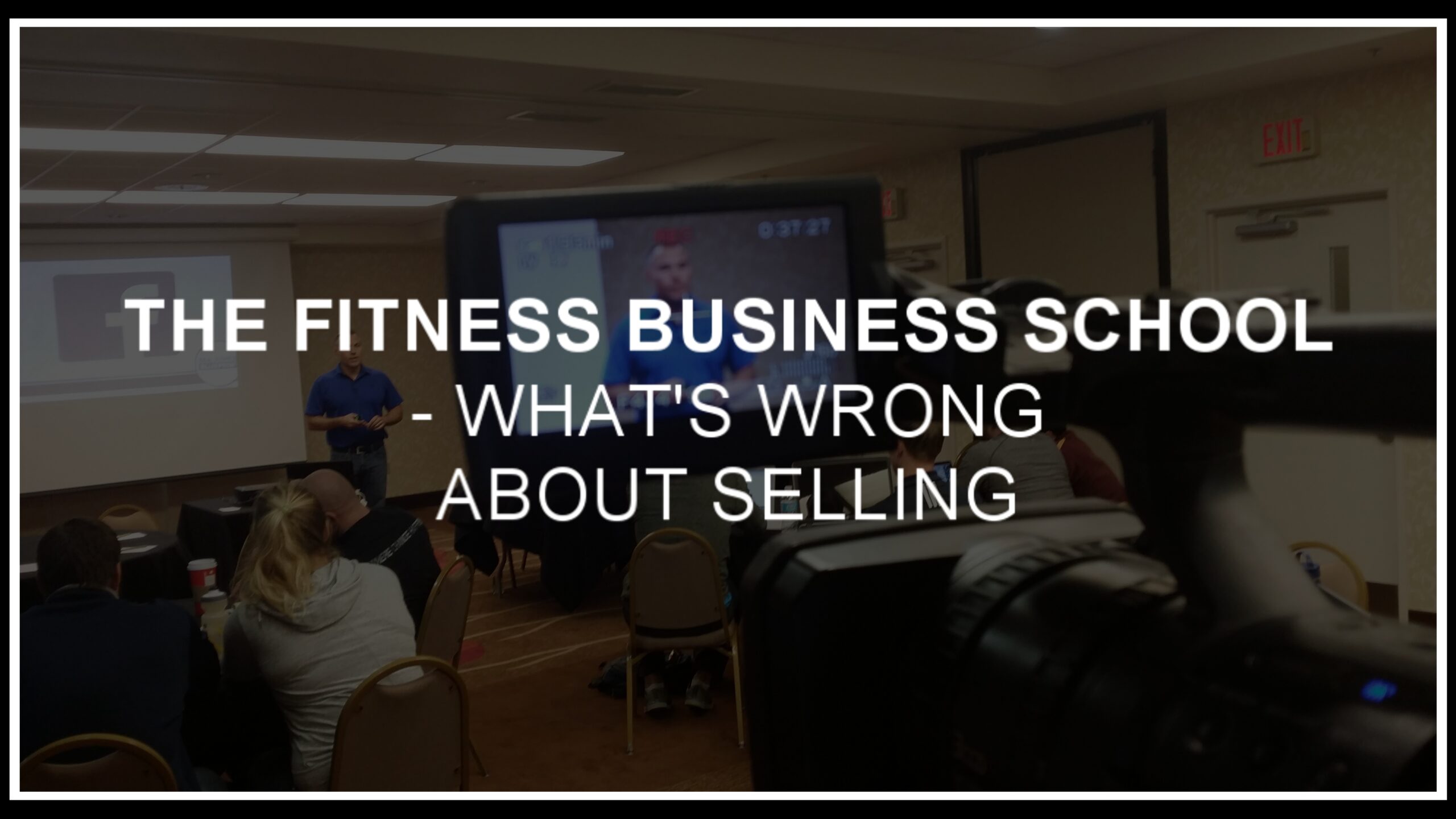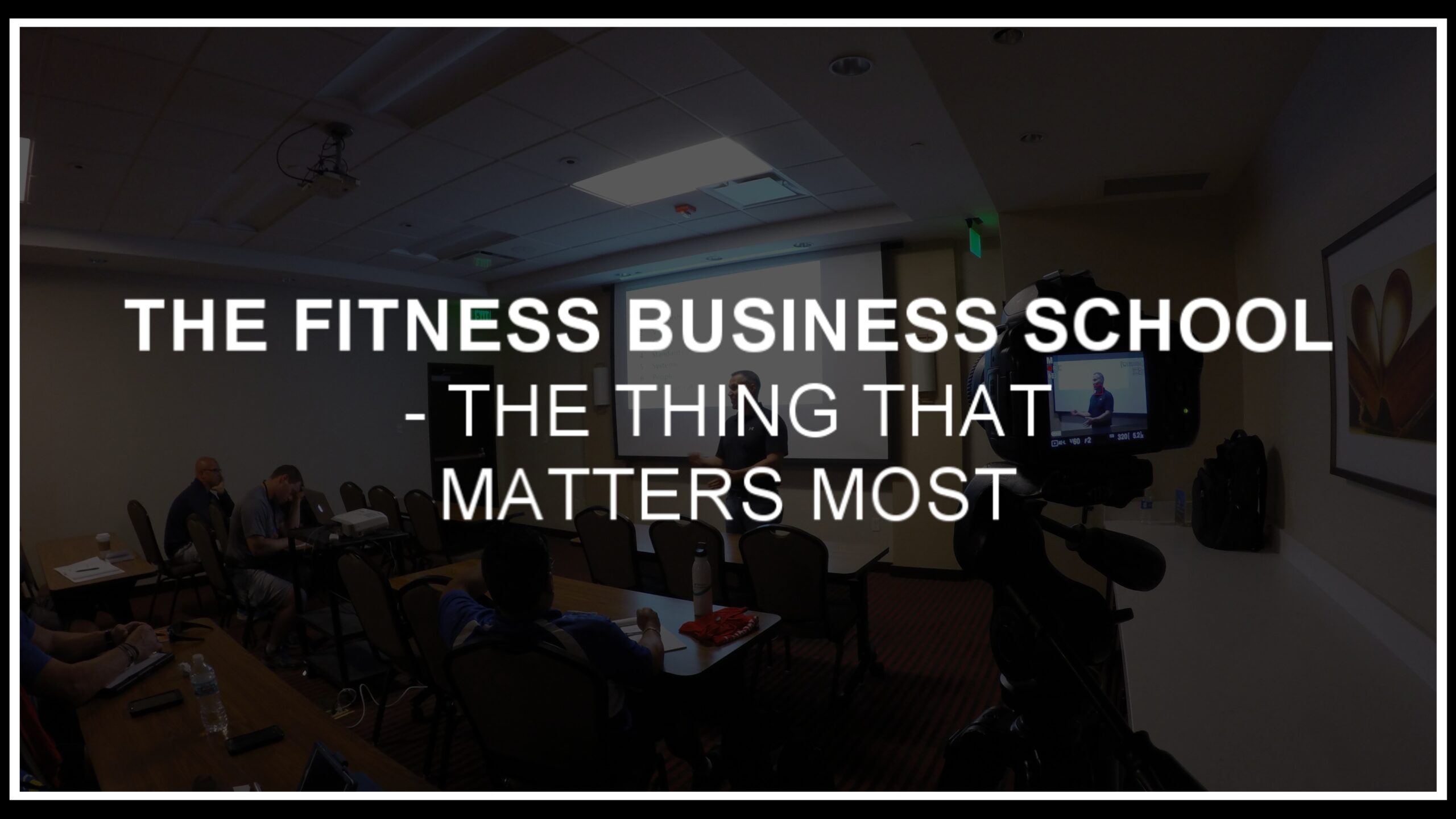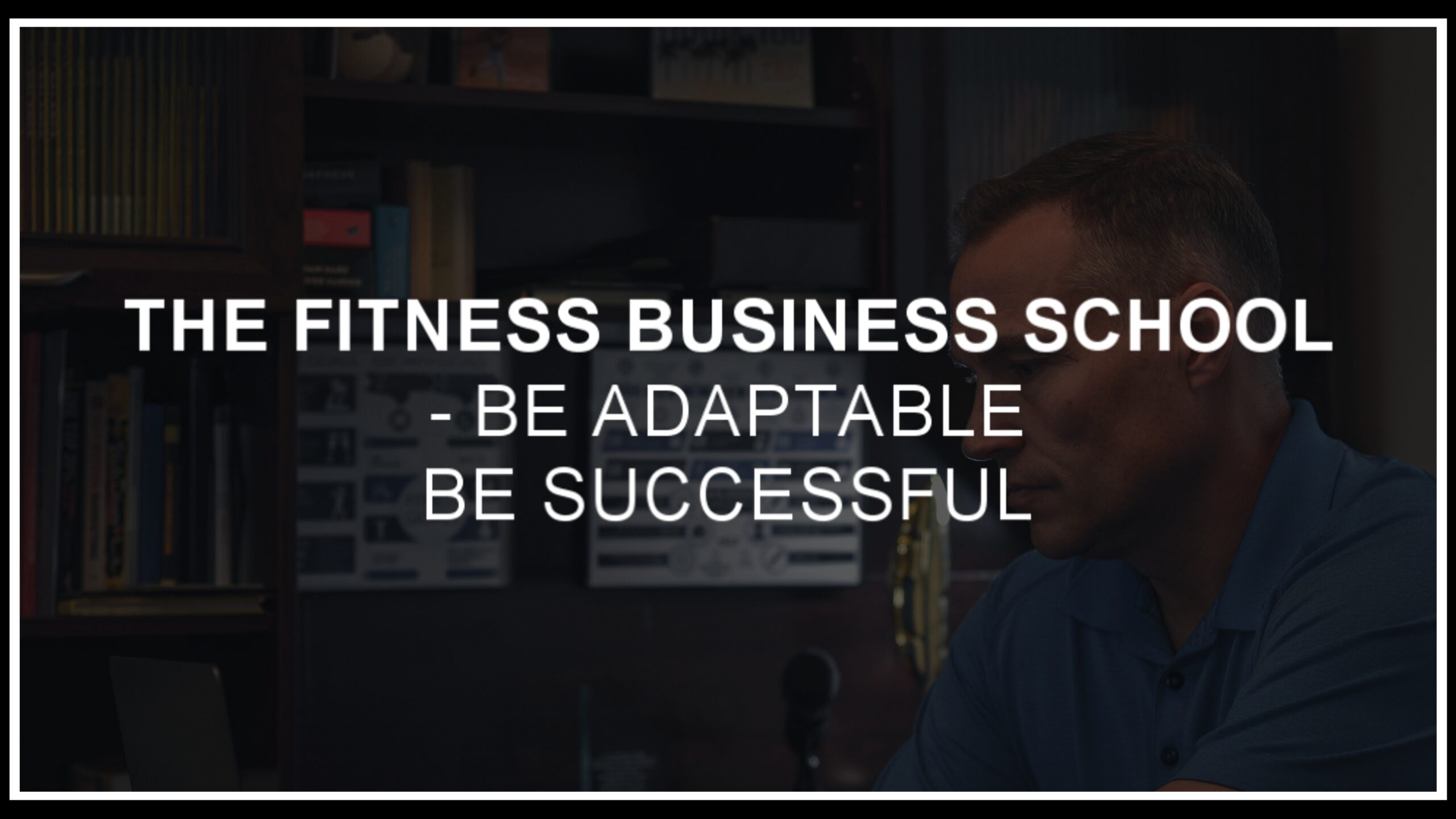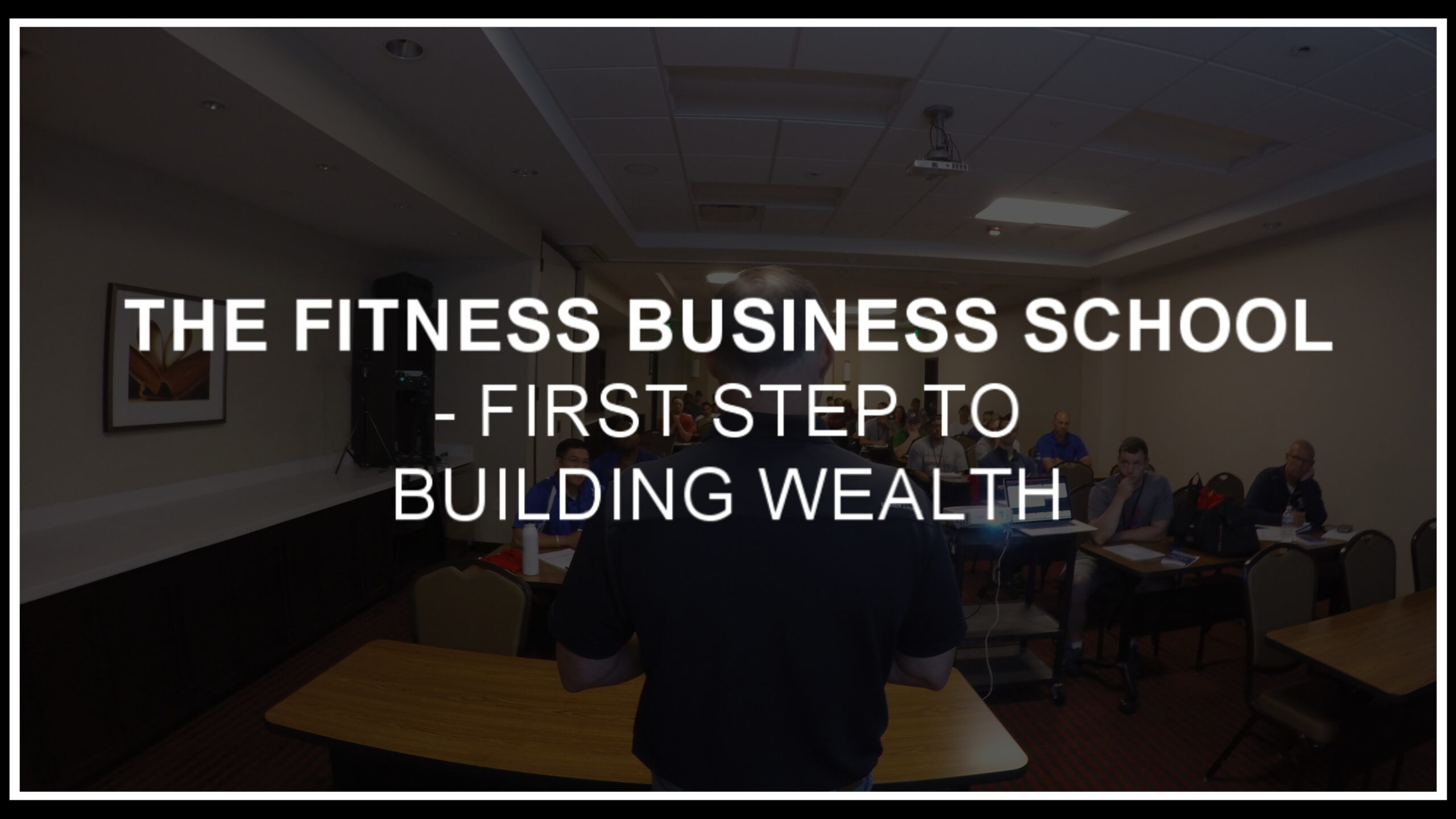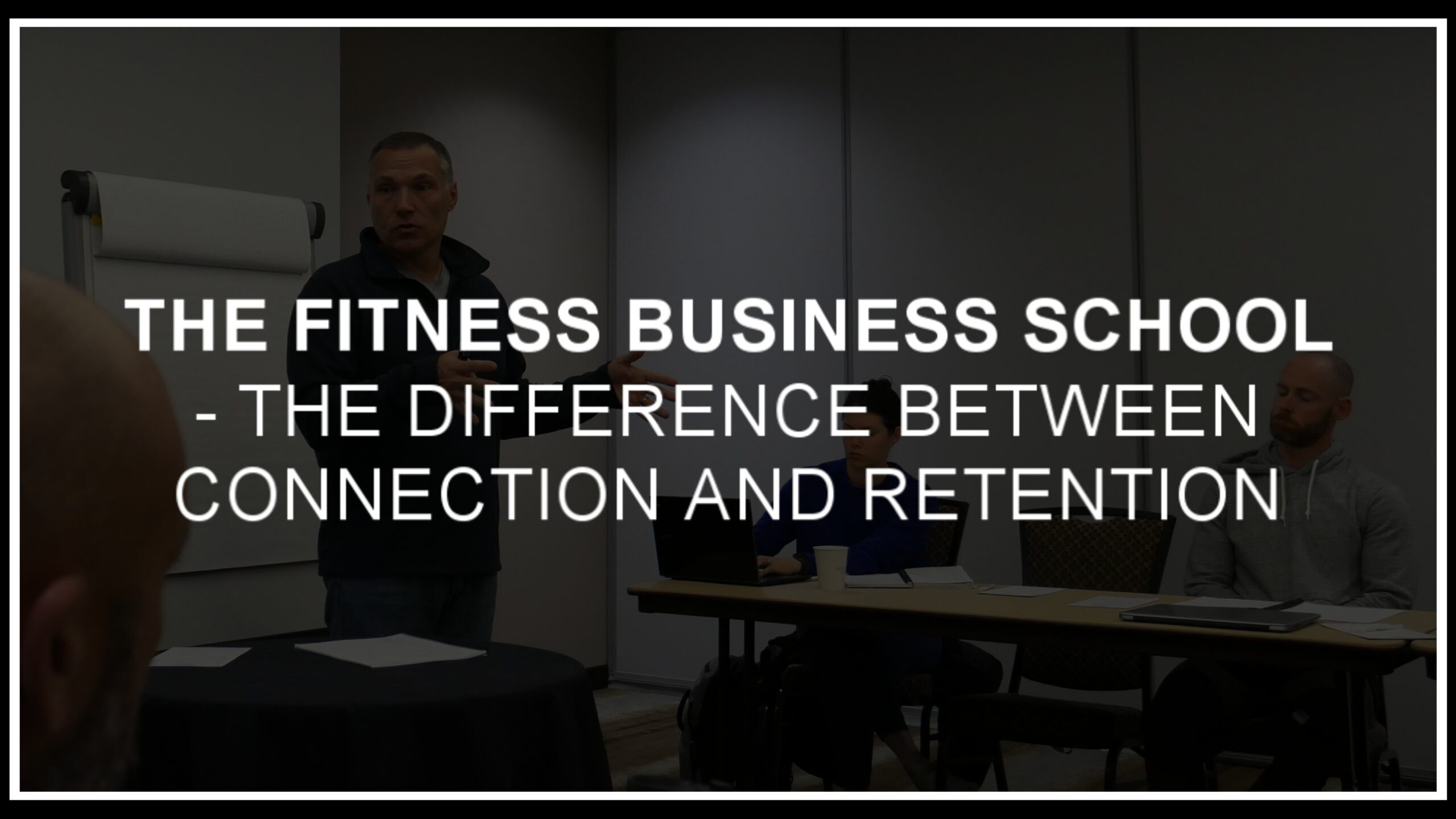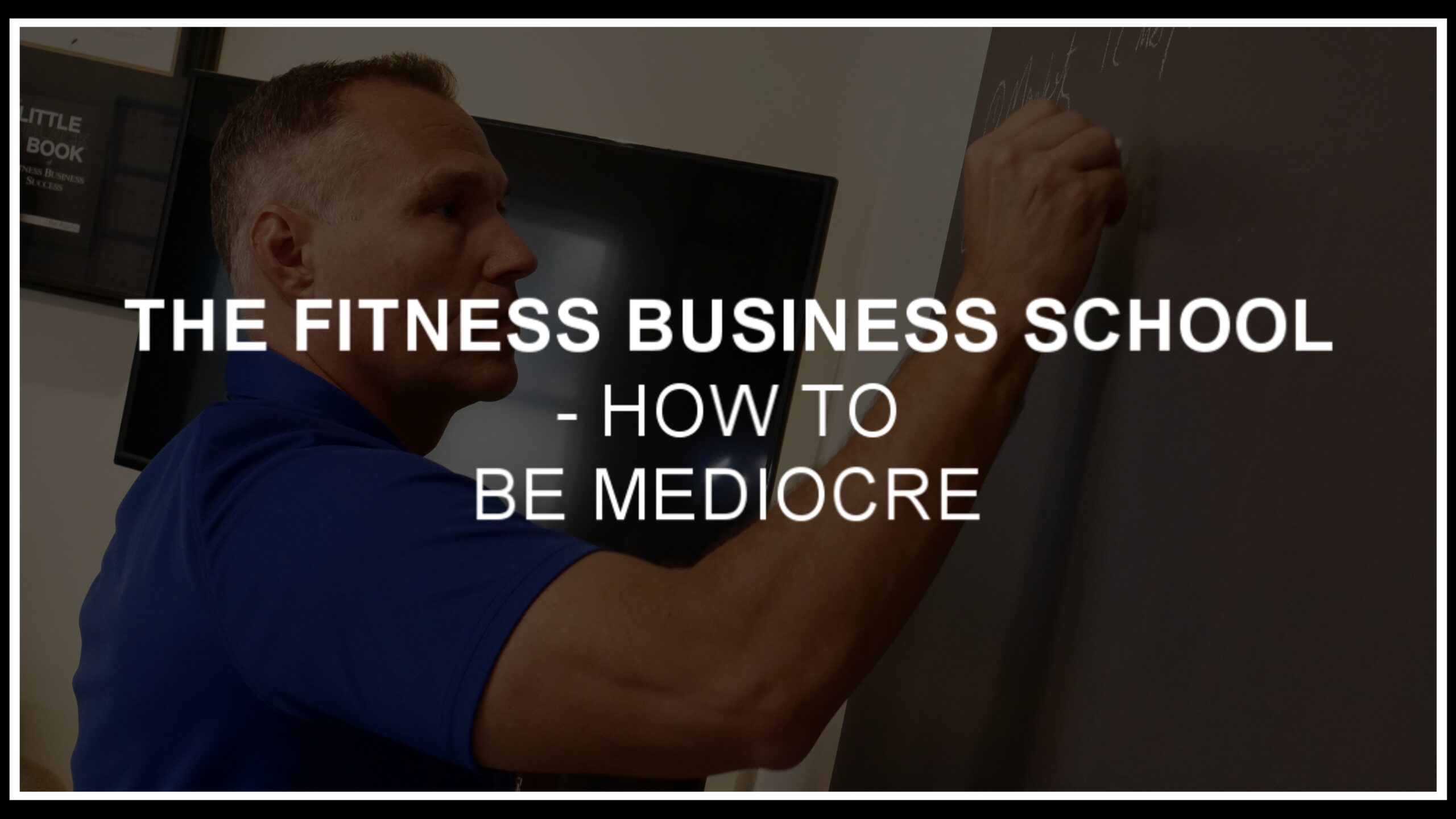Show Notes
- People thought online would take over post-pandemic
- Free perks have now become boutique franchises
- Accountability and coaching in the 165 make the difference
- Pat is adding a full-scale weekly accountability program
- Knowing your coach is thinking of you boosts commitment
- The working itself is rarely people’s biggest issue
P.S. – 6-Weeks of Coaching…Free.
Get a surge of new clients and revenue over the next 6 Weeks with ZERO FEE and no obligation to continue?
If you’re a current business owner who wants to add 50K or more in annual revenue over the next 12 month, you can Test Drive our coaching program for 6 Weeks with no fee or even an obligation to continue as a way to demonstrate how we can help you grow your business.
No strings attached. No obligation. You get our best coaching & tools…and hopefully, you’ll love it enough that you want to keep working together.
Would you be interested in discussing?
If so, email me here with ‘interested’ in subject line and we’ll set up a chat.
Full Transcript
Hey, Pat Rigsby here and in today’s episode, I wanna talk with you about how to provide a better experience for clients and generate better results. Let’s get started.
Welcome to the Fitness Business School podcast, the show for fitness business owners who want to grow their income, increase their impact and improve their lifestyle. Be sure to listen till the end of this episode because we have a brand new special offer exclusive for listeners. So stay tuned.
One of the things that has held true throughout the time that I’ve been working in the fitness industry is it’s constantly changing. It’s constantly evolving,
and I don’t think that’s unique to us, but I certainly think that if I look back to when I started working in the commercial side of the fitness industry, things were primarily one-on-one sessions that were sold in packages or in, in a series. There wasn’t really recurring billing.
Most things were either a big box health club or a high end private studio. There wasn’t the it light industrial space type stuff, or the outdoor boot camp or any of that. And, you know, that kind of gave way to the group training model. And then it kind of became a almost like, uh, an evolution of the health
club side first, where there were so many, um, low cost, no, no long-term commitment, planet Fitness-esque businesses. And then more recently, there’s been any number of small boutique group training studios that have come up in a franchise model. And all along the way there’s been a growth of,
this whole online kind of coaching component. And I think that a lot of people miscalculated during the pandemic. They thought that, um, online was just gonna take over. And I mean, I think that logically we should have understood that that wasn’t gonna be the case.
Because I mean, let’s face it, the big fight were battled during the pandemic was people wanting the ability to go back and go to their favorite restaurants and be the places they wanted to be without restrictions. So the idea that somebody was just gonna sit in front of a computer screen all the time and do their workouts or something like that, seemed kind of far-fetched to me. But what it did kind of remind me of how quickly things move, how quickly things, um, kind of evolve. And it also kind of made me reflect back and see that, you know, there were a lot of group training programs that were included in a $39 health club membership when I first started that have now been splintered out and sold as a hundred twenty nine, a hundred forty $9 memberships in boutique settings, right? Like there were entire menus of kickboxing classes, and now there are kickboxing franchises that essentially make you pay, you know, five times as much.
There were, um, cycling classes and Pilates classes and all these things. And not to say that the, the small boutiques were not doing something a little bit better than maybe was offered in the big box out club. But it, again, it was that same thing. And I, if history has told us anything, it, it’s that the,
the consumer kind of recognizes over time that these things are a commodity and the pricing and the commitment and all that stuff starts to shrink. I mean, that’s what happened with the big box model. And I would think that if we were to have a crystal ball, we would say that at some point, that sort of
thing probably happens to some of these boutique studios because people are gonna say, well, I could get those same classes at a big box health club for a fraction of the price.
So why am I paying 5, 6, 7 times as much to do it in this one studio? So the reason I wanted to tell you this is the missing piece that it doesn’t seem like has, um, permeated most of the fitness industry is the accountability and coaching that happens throughout the week, throughout the other 1 65. It still makes no sense because let’s face it, I mean, yeah, people come to to exercise, they come to do a training session or workout or whatever you choose to refer to it as, but you know, there’s still 165 hours a week that they are essentially independent, they’re on their own. And if we want to get them better results, we probably have to support that time with almost as much diligence as we support the time that they are under our care, under our supervision.
So one of the things that we are actually introducing into our broader coaching programs is a kind of a full scale weekly accountability program where people make commitments each and every week. They identify what their weekly goals are. We, we typically shoot for three weekly goals, and then we
basically help them break down those goals by asking the right questions, by helping people kind of organize their, their thoughts and make things realistic. We, we help them, you know, stay on task with this stuff. We provide accountability throughout the course of the week. And then, you know, people
start stacking up the wins week after week and they get momentum and they realize that, hey, this coach is looking out for me when I’m not necessarily in their line of sight. And I think that that’s the part that is kind of the missing link because most of this, it still kind of comes down to, and I’m not saying
that everybody does this the same because some people are extraordinary at this, but a lot of it’s just hosting workouts that people can attend.
But, you know, and that’s great because if they have an appointment and then they feel like there’s some accountability because there are people waiting on them or they’ve scheduled something, if it gets them to do it, that’s great. But what about their recovery? What about their nutrition? What about
being physically active between training sessions? Are we doing anything to facilitate that, to support that, to let people know that we actually care about them for the other 165 hours a week? And if we’re not, that’s an opportunity. And you know, that may be kind of offensive to some, some people may say,
well, you know, of course I care, but I mean, I’m not gonna babysit people or whatever. This isn’t about babysitting. This is about facilitating somebody’s success and solving their problems. And clearly if you were to ask your clients who are coming to training sessions and following your instructions, but maybe
not getting the results that they wanted, what the bottleneck is, it’s probably not that they need to, you know, do something different when they’re under your supervision.
It’s that they probably need a little bit more help during those kind of in between windows. So if you haven’t figured out a way to facilitate or support somebody’s compliance, their behavior, their action in between sessions, in my mind, that’s the blue ocean that is the opportunity because frankly, I don’t see
franchises diving into that end the pool anytime soon because franchises are built on leverage. How can they hire low cost labor and create as much opportunity for marketing spend and, and that sort of thing. They wanna spend money on class, a real estate, they wanna spend money on advertising, they don’t
wanna spend money on labor. And if you look around any franchise model, it doesn’t matter if it is, um, fitness or hospitality or restaurants or whatever else, um, typically they, they want to figure out how can we cut our labor costs any way that we can, whether it’s through automation or creating systems to hire
people who may not command as high a salary or hourly wage.
So they’re not going to add this personal touch. And that is an opportunity for you to stand out. That’s an opportunity for you to kind of fill in this gap and be different because ultimately, you know, it’s a neat environment to be in because early on, so many people were, um, they were new to fitness, they
had never really used a coach, but we’re getting further and further along where now most people have been in a coach led environment that, that are out looking for one, right? Like it’s not, you’re not only looking for first timers, you are looking for people who are fi looking for a better fit, not their first fit.
And if you can provide something better and different, you have a much higher likelihood of standing out of attracting people because you’re filling in the thing that they believe is holding them back and you’re keeping them.
Because when people start to look around at this whole shiny object kind of thing, when something new pops up in your market, they’re gonna be missing this critical piece that you have and you do. So if you’re not providing this other 165 care, this accountability, I would encourage you to start. If you want
to see how it works firsthand, I would encourage you to shoot me an email at [email protected] and we can talk about how you can be the recipient of this sort of support care and coaching in our coaching programs and see how you can apply it in yours. So install the other 165 and watch your business
improve.
Thanks for listening to this episode of The Fitness Business School.
Before you go, I’ve got a quick announcement. When I first connect with fitness business owners, they almost always ask me how I can get more clients and make more money. Well, I’ve got an exclusive offer for you and it’s gonna help you do just that.
And as a listener of this show, I would love to invite you to a conversation where you and I can talk about our new program, the Business Growth Sprint.
The Business Growth Sprint is a one-of-a-kind program where you get everything you need.
We actually work with you one-on-one, unlimited, one-on-one coaching and support.
We design a marketing plan for you.
We give you assets to execute the plan.
It’s unmatched in our industry between the level of coaching, the frequency of accountability, the simple step-by-step nature and the completeness of how it’s gonna guide you to making more money and improving your personal income fast.
Imagine having every tool, template, ad, and script that you need all ready-to-use. Plus you’re going to get one-on-one access with me and the other coaches on my team to make sure that everything from your business growth plan to your marketing and sales system is done, turnkey, ready to go.
And what’s great is there is zero risk. We guarantee that you are going to add at least $4,000 a month in recurring revenue, or $20,000 a month cash collected as part of this program in just four months.
So if you are interested, if you’d like to discuss and see if this is a fit, just shoot me an email at [email protected] and put Sprint in the subject line and I’ll get you all the details.


